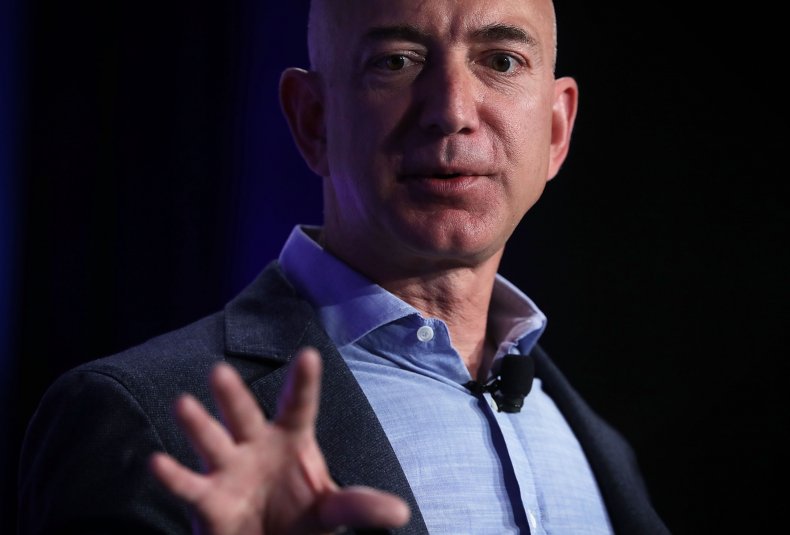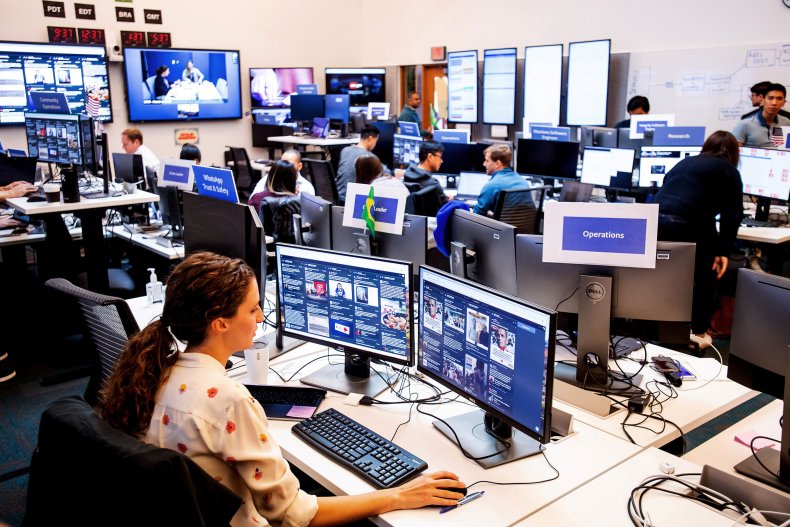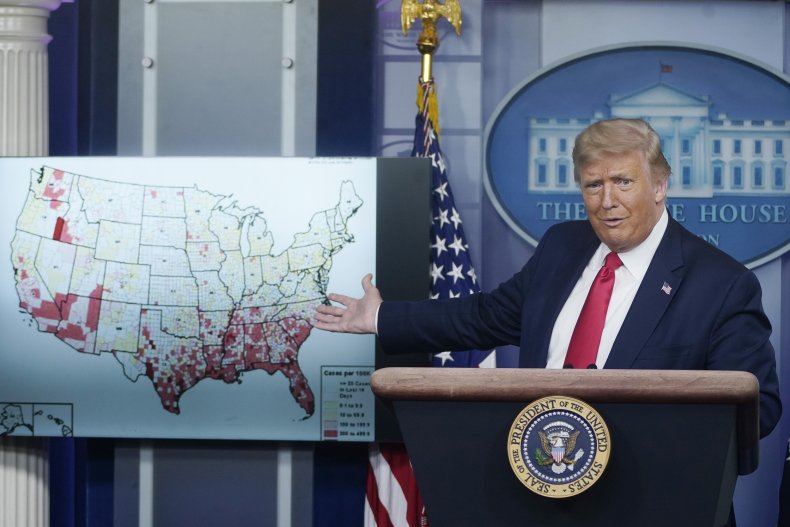HANK GILMAN

This is the 30th weekly edition of On the Street, though I may have lost count. In any event, it's pretty amazing that every single week has been a profile in turmoil. Week 30 was no different. House Democrats were still doing battle with reluctant, and cheap, Senate Republicans over a much-needed COVID-19 bailout package. Was Republican Senate Majority Leader Mitch McConnell confusing enhanced unemployment benefits with Merrick Garland? That could explain it. Speaking of not making sense, the S&P 500 stock index was actually a bit up for the week again, because...who really knows? Some of my topics this week: Why Amazon isn't all the evil, Silicon Valley's plot to cut salaries of stay-at-home employees—and how things really work in the world of investing. (President Trump's economic advisor Larry Kudlow is involved, wouldn't you know it?) Oh, and, of course, more great music in Loose Change.
Big, But Bad? Amazon launched the holiday shopping season with its Prime Day(s) last week. You were able to get deep discounts on must-haves like DNA testing kits, crock pots and, needless to say, Sherpa fleece blankets. This all comes amid complaints from Congress on Amazon's market power. (For details, if you can take it, see here.) I'll get into the antitrust issues around Amazon, Facebook, Google and Apple in a future column. But as the pandemic/holiday shopping season kicks off, it is worth a reminder that there's a good reason why Amazon is where it is today. Since Jeff Bezos founded the company in July 1994, as a online bookseller based in Bellevue, Washington, it grew partly by following the cardinal rule of retailing: give the customers what they want, when they want it. If you were anxious to have the latest Harry Potter novel, it would be on your doorstep the first day it was available. If you wanted an obscure CD from a band, say the really obscure Ultimate Spinach, no worries. Jeff's got it. But there was much more to it. "Yes, Amazon gave shoppers what they wanted when they wanted," explains Brian Dumaine author of Bezonomics: How Amazon is Changing Our Lives and What the World's Best Companies Are Learning From It. "But the key to its success is that Bezos also gave shoppers what they didn't know they wanted—everything from one day shipping, to free movies with a Prime account to a talking genie named Alexa that makes it easier than ever to order—from Amazon, of course." The result? The company accounts for nearly 40 percent of online retail in the U.S., says Dumaine. But don't fear its current dominance. Long ago, in ancient times, Sears, with its stores and catalogs and machine washable suit, was a force to be reckoned with. Walmart was reviled because, critics said, it destroyed Main Street USA. (It may be hard to remember, but before Sam Walton became Darth Vader, he was Luke Skywalker. Or something like that.) Yup, Amazon may be the new evil empire. But tell that to its customers. They won't care until something else, better, comes along. And it always does.

Well, At Least You Still Have a Job: Interesting piece in the The Wall Street Journal last week about the latest Silicon Valley rumpus. (Click here.) As you know, companies from Facebook to Microsoft have discussed plans to let employees work remotely permanently. Sounds like a great thing. Move to a cheaper state or one, at least, that's closer to Vail. But before you think about leaving your home in Silicon Valley or New York City, consider this: According to the WSJ, some companies, like Facebook and Microsoft in fact, are considering cutting pay based on the new zip code. I can see it from a company point of view. Salaries are often based on cost of living. But the pay cut scheme has been controversial. Even Rush Limbaugh has weighed in, unable to resist the temptation to bash "the libs" in the tech industry. My advice: grandfather the salaries of current employees; the salary-cut resentment wouldn't be worth it. And, besides, are salaries cut when, say, an employee moves from San Francisco to lower-cost Oakland? Think not. In any event, I asked Mercer Consulting to weigh in on this for me. Tauseef Rahman, a partner at the firm, sorted it out a bit via email. "It makes sense to pay local labor rates when the job requires local presence, such as a nurse at a hospital," says Rahman. "However, when work can largely be done digitally and from anywhere, the labor market is arguably more regional, national, or international." Furthermore, he added, tech's geographic pay differences aren't as wide as other industries: For example: overall, Seattle jobs pay 13 percent less than in the Valley, but salaries at Seattle tech firms are only 6 percent lower. What's the normal practice when employees relocate to bargain regions? Rahman says half of all companies "keep the pay as is," a quarter reduces pay—and the other 25 percent "slows pay growth." Tech companies? They, he adds, "tend to be more likely to reduce pay if an employee moves to a lower cost labor area." So much for Vail.
 Martha Stewart: Next time, stick to mutual funds.GETTY IMAGES/JAMIE MCCARTHY
Martha Stewart: Next time, stick to mutual funds.GETTY IMAGES/JAMIE MCCARTHYInsiders: Back in 2004, Martha Stewart spent five months in prison for, among other things, making false statements to the FBI. (In a case prosecuted by James Comey, by the way.) The initial alleged crime: she dumped stock in a company called ImClone after a tip from her broker that the CEO was selling his own stake. According to a jaw- dropping Kate Kelly story in the The New York Times last Thursday, the same rules apparently don't apply to board members of the Hoover Institution, a conservative think tank. This from the Times report: In February, despite public statements from President Trump and economic advisor Larry Kudlowthat the COVID-19 virus was "under control," a much more bearish report on the virus was being doled out to Hoover board members by Kudlow and other Trump officials, according to a memo written by a hedge fund consultant at the briefings. "The consultant's assessment quickly spread throughout parts of the investment world," wrote Kelly and Mark Mazzetti of the Times. The reaction of one investor privy to the memo? "Short everything." That's making a bet that stocks would go down, if you are wondering. And go down they did. Big time. The bottom line: while Trump and company were assuring the rest of us that everything—including the stock market—was going to be just swell, the administration was privately telling its well-heeled donors the opposite. It's not clear whether this qualifies as a crime in the murky world of insider trading law. But if we actually had a real cop on Wall Street, maybe we would get an answer. Sorry, Martha. You just got the wrong kind of tips.

Loose Change: The New England Journal of Medicine, for the first time ever, I think, published an editorial aimed at a participant in a presidential election. Topic: the government's handling of the COVID-19 pandemic. They wrote: "Reasonable people will certainly disagree about the many political positions taken by candidates. But truth is neither liberal nor conservative. When it comes to the response to the largest public health crisis of our time, our current political leaders have demonstrated that they are dangerously incompetent. We should not abet them and enable the deaths of thousands more Americans by allowing them to keep their jobs." Read all of the editorial here...Mitch McConnell Watch: Speaking of leadership voids, the Senate Majority Leader said there will be a vote on a narrow COVID bailout bill that would include help for small businesses and, perhaps the airline industry. Nothing for struggling state and local governments? Or the unemployed? (Another close to 900,000 claims last week, if you're keeping score.) No one knows but, perhaps, Mitch. Meanwhile, back in Kentucky, McConnell's home state, there was a backlog of 75,000 folks waiting for decisions on their jobless claims, some that go back as far as March, according to WKRC in Cincinnati...Quote of The Week: "I worry that countries around the world are going to say, 'We can try what Sweden did.' But we have killed too many people already." That's University of Gothenburg Professor Andrew Ewing summing up Sweden's controversial herd immunity approach to COVID, embraced by some in the Trump administration. Thank you, Science magazine...Walmart+ Mini-Review: After watching all those ads last weekend touting the big retailer's answer to Amazon Prime, I thought I'd go online and give it a test drive. I live in Westchester County, New York. The test drive didn't last long. That free delivery benefit sounded good. But not available in my zip code. The 5-cent a gallon gas discount? Well if I wanted to drive 88 miles to East Stroudsburg, Pennsylvania, from Yonkers to fill up, that might be a good benefit. But I'd need the gas discount, for sure, to get back...On the Street Jukebox: South Korean entertainment company Big Hit is now valued at more or less $4 billion after selling off 20 percent of the firm to a lot of K-pop fans and other investors. The big band in the stable? Mega-famous boy group BTS. For the musically curious, here's BTS's appearance on Saturday Night Live. Is that a vocal backing track I hear?...And this one's for On the Street deputy Sam Hill: the latest from the great Mountain Goats...Enjoy and be safe this, and every other, week.
No comments:
Post a Comment